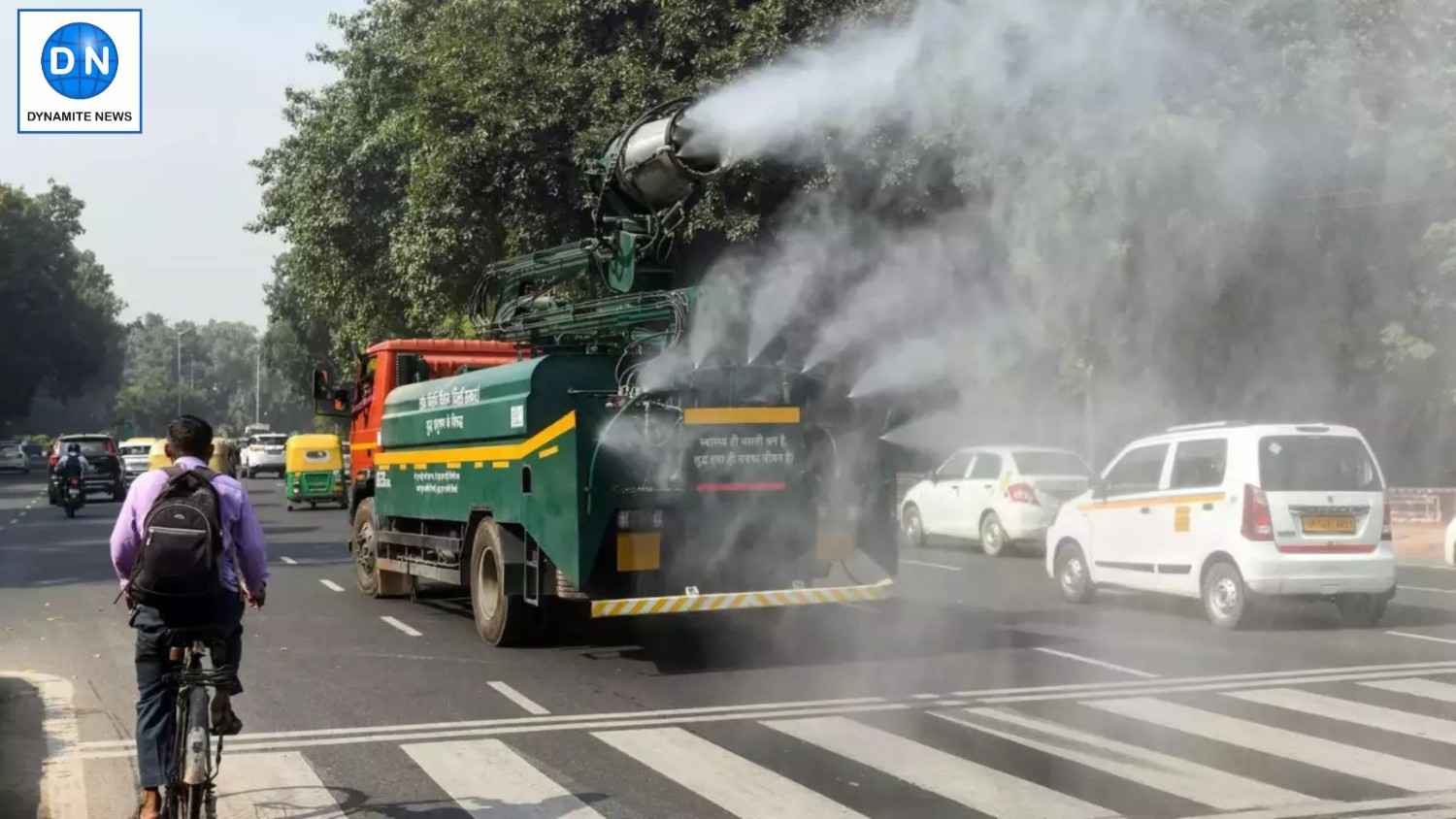
New Delhi: As Delhi Air quality deteriorates at alarming levels, Public Works Department (PWD) vehicles sprayed tiny droplets of water to mitigate the effects of poor air quality in the national capital on Wednesday.
A day ahead of Diwali, a thin layer of smog covered the national capital as parts of Delhi, air quality remained in the 'very poor' category, with an Air Quality Index (AQI) of over 300, as reported by the Central Pollution Control Board (CPCB).
Anand Vihar AQI 351
At Anand Vihar, the AQI reached 351 at 7:00 am, while Bawana recorded an AQI of 319, Ashok Vihar was 351 and Wazipur recorded 327, falling under the 'very poor' category. Aya Nagar recorded an AQI of 290 falling under the 'poor' category and Delhi's ITO stand at 284 in 'poor' category.
Also Read |
No respite; Delhi registers warmest October month since 1951
Toxic foam was seen floating on the Yamuna River in Kalindi Kunj, as pollution level in the river continues to remain high.
Meanwhile, Delhi Bharatiya Janata Party (BJP) leaders reported on Monday that 108 incidents of stubble burning were recorded in Punjab.

BJP protest
They staged a protest against Punjab Chief Minister Bhagwant Mann over air pollution concerns at Kapurthala House. A delegation of leaders sought a meeting with the Punjab CM to submit a memorandum but was unable to meet him.
Delhi BJP president Virendra Sachdeva stated that 108 cases of stubble burning were reported in Punjab on October 26 alone, yet ministers from the Delhi government frequently place blame on neighbouring states, Haryana and Uttar Pradesh.
Also Read |
Delhi: Toxic foam in Yamuna raises pollution concerns ahead of Chhath Puja
As the festival of lights nears, the Delhi government has also banned firecrackers till January 1 amid efforts to curb pollution levels.
'Diya Jalao, Patake Nahi'
Delhi Environment Minister Gopal Rai launched the 'Diya Jalao, Patake Nahi' campaign urging the public to avoid firecrackers to keep pollution in check. Rai marked the campaign's launch by lighting diyas at the Babarpur Bus Terminal, stating, "Collective efforts from the public are essential to controlling pollution." (with Agency inputs)







